Thomas Ambrogi

He had been an active Jesuit priest until the age of 39, when he resigned his ecclesiastical ministry. Together with his lawyer wife, he became a global servant of peace and justice causes.
He was born in Philadelphia on January 11, 1930, the third in a family of five children, with grandparents from Ireland and Italy. He entered the Jesuit Novitiate in Wernersville, Pennsylvania in 1947, beginning a 15-year course of studies leading to ordination. His father had died of a heart attack when Tom was 16, and his mother of breast cancer two years later. He looked back to those early encounters with death as among the most formative experiences of his life.
He earned a Master of Arts in classics from Fordham University, followed by a three-year stint teaching classical languages at Georgetown University. In the summer of 1957, he was sent by his order to the University of Innsbruck in Austria for four years of Jesuit theology studies. There his major professor and mentor was Karl Rahner, leading Catholic theologian and later advisor at Vatican II.
In 1960, Tom was ordained a priest. In the next five years he briefly served as a chaplain to the US military in Europe, taught philosophy at Georgetown, led an Operation Crossroads Africa work camp in the Ivory Coast and completed his doctoral dissertation in ecumenical studies, focusing on the Lutheran Church Missouri Synod. In 1965, he received a Doctor of Religious Science degree from the University of Strasbourg in France.
He then became professor of theology and ecumenical studies at Woodstock College in Maryland. At a 1966 conference at the University of Notre Dame where he served as translator for Karl Rahner, he met Donna Myers, a lay woman teaching at Alma College, the Jesuit School of Theology in Los Gatos, California—perhaps the first woman ever to teach at a Jesuit seminary.
Mr. Ambrogi’s difficult decision to leave his ecclesiastical ministry came after three years of service as a Roman Catholic member of official national dialogues between Catholic and Lutheran and Catholic and Anglican theologians seeking Christian unity. At a dialogue meeting in San Francisco, he again met Ms. Myers, then in ecumenical campus ministry at Stanford.
In 1969, the couple was married in Palo Alto by Barbara Troxell, a Methodist minister who remains a dear friend and neighbor at Pilgrim Place. Mr. Ambrogi taught for eight years in religious studies at University of the Pacific in Stockton, California. During a sabbatical semester in Jerusalem in 1973, the Ambrogis experienced firsthand the Yom Kippur war, which sharpened their understanding of Israeli-Palestinian justice issues.
After Donna graduated from Stanford Law School in 1977, the couple lived in San Francisco where Tom moved into leadership of various justice and peace organizations. In 1980 he became director of the Commission on Social Justice for the Archdiocese of San Francisco, where he played a major role in the formulation of the US Catholic bishops’ national pastoral letter, “The Challenge of Peace.”
Mr. Ambrogi led a small delegation to El Salvador, successfully obtaining the release of a prominent political prisoner. San Francisco Mayor Diane Feinstein appointed Mr. Ambrogi to the city’s Human Relations Committee. He also helped organize church support for the nuclear freeze movement in California, and was fired by the Archbishop for supporting publication of a report on LGBT rights in the Archdiocese.
In 1985-86, Mr. Ambrogi founded the National Sanctuary Defense Fund, raising funds for the legal defense of church workers indicted for assisting Central American refugees entering the United States. He then spent a challenging year as interim dean of the Chapel at Stanford. From 1987 until 1990, he focused on hunger issues as director of the Institute for Food and Development Policy (Food First). For over 10 years, he and Donna hosted a monthly gathering of social activists for deep personal sharing.
Tom served four times as interim regional director for the American Friends Service Committee in different areas of the United States. During 1993 and 1994—the intense period surrounding the election of Nelson Mandela—Mr. and Mrs. Ambrogi volunteered in anti-apartheid programs in Cape Town, South Africa. This was a major experience of their lives, supported by contributions from friends and a Fulbright grant for Donna.
In 1996 the Ambrogis moved to Pilgrim Place in Claremont, an intentional community of 350 elders who had worked for religious or humanitarian organizations. It became their “beloved community.” Mr. Ambrogi continued his priestly pastoral ministry as a volunteer chaplain at Pilgrim Place’s Health Services Center. He also actively promoted the Jubilee 2000 movement to cancel the debts of the world’s most impoverished nations, marched often against the war in Iraq and went on a speaking tour to schools and churches to “bring the troops home now.” He served several years on the Board of Progressive Christians Uniting in Southern California.
After attending the World Council of Churches Assembly in 2006 in Brazil, Tom and Donna visited Argentina and Paraguay. While there he was bitten by a poisonous insect and developed a life-threatening infection that kept him bedridden for most of a year. Weakened but with a strong spirit of activism, Mr. Ambrogi continued support of peace and justice causes through All Saints Episcopal Church in Pasadena and in the Claremont area. In 2014, at the age of 84, Mr. Ambrogi published his book, Seeking Good Work: Memoirs of a Priestly Pilgrim.
His mantra around Pilgrim Place was always, “It’s going to be all right!” A meaningful and happy chore for Tom during many annual Pilgrim Place Festivals was to stamp a red “OK” on the hands of little participants in Glue-in art projects. He then told the youngsters, addressing them by name, “You are OK, and don’t ever let anyone say you are not!” He called these his “liturgical blessings.” As Tom was dying, a Glue-in leader stamped his hands with the red “OK.”
He is survived by his wife of 46 years, Donna Ambrogi, and by his extended family and many dear friends.
A memorial service for Mr. Ambrogi will be held on Saturday, October 31 at 3 p.m. in Decker Hall at Pilgrim Place, located at 665 Avery Road in Claremont. Contributions in Tom’s memory may be sent to Pilgrim Place, 625 Mayflower Road; to Crossroads, Inc., 1269 Harvard Ave.; or to Uncommon Good, 211 W Foothill Blvd.—all in Claremont, CA 91711; or to Inland Valley Hope Partners, 1753 N Park Ave., Pomona, CA 91768.



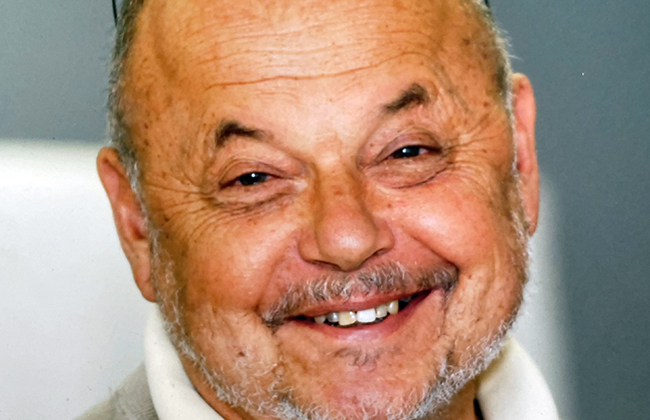
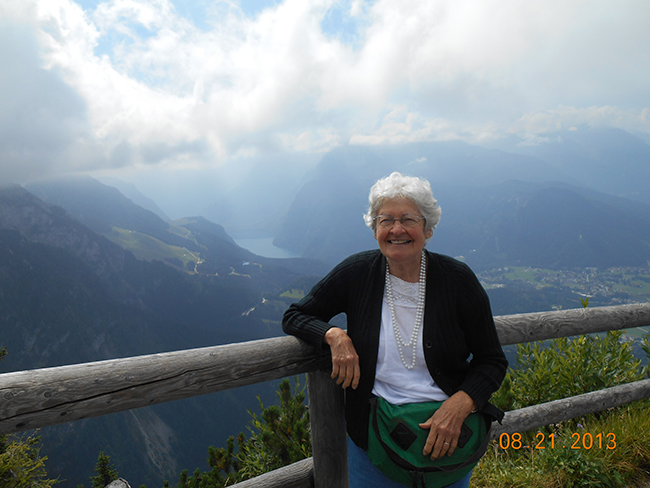
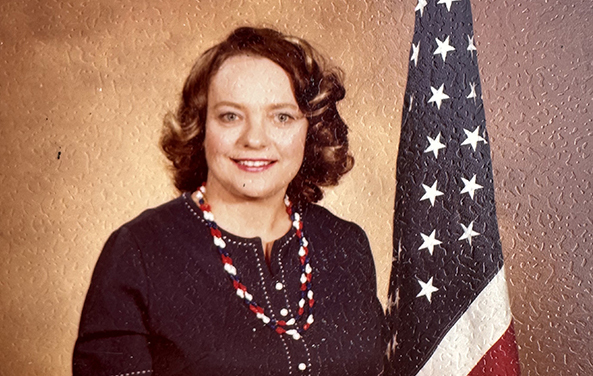
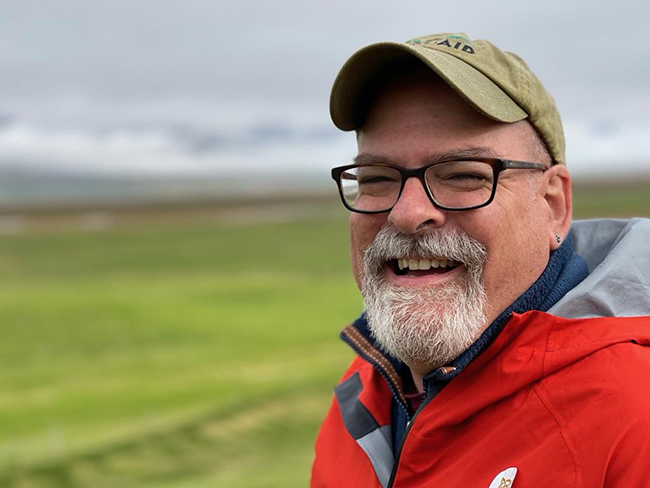
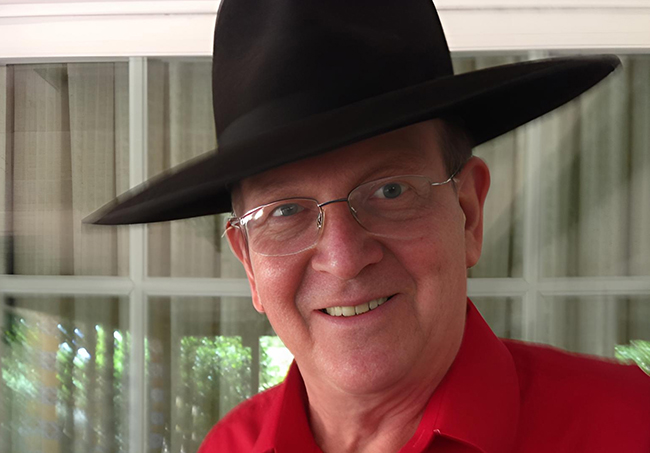
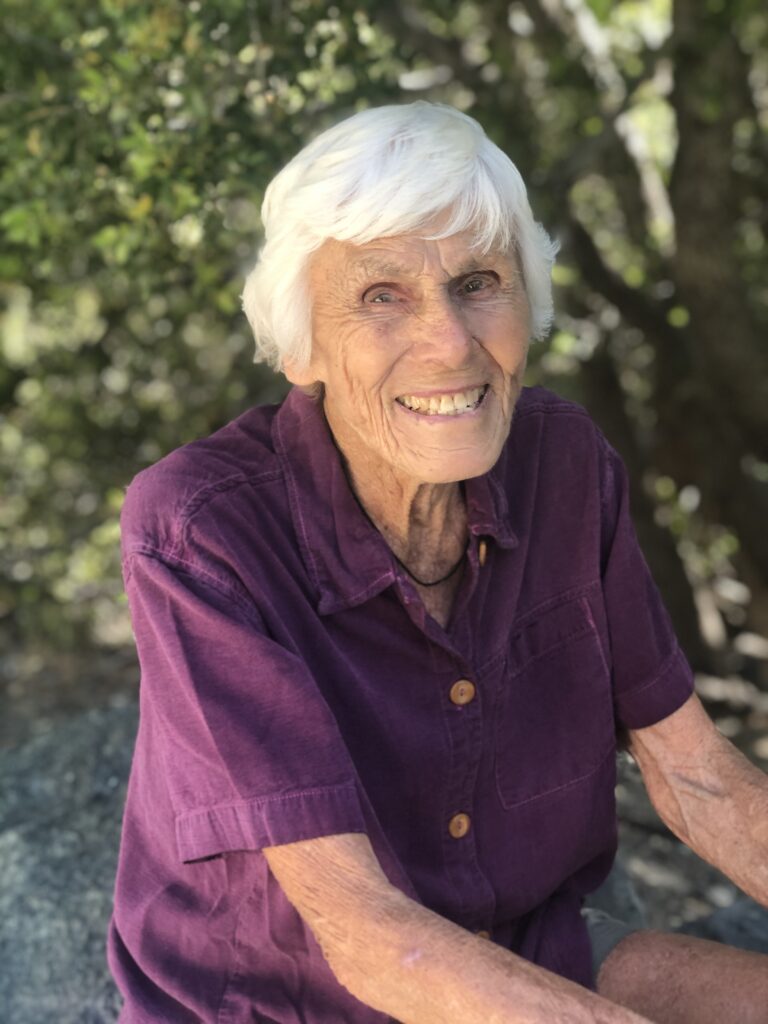

0 Comments